In a world where our phones know more about us than our best friends, emerging technologies are like the new kids on the block, turning heads and re-shaping our future. Imagine a society where artificial intelligence knows your favorite pizza toppings, blockchain whisks away shady dealings, and connected devices converse about your daily habits. Sounds riveting, doesn’t it? This article unpacks emerging technologies, showcasing how they are not just trends but vital forces that can reshape industries and everyday life. So buckle up, because the future sounds fast and fun.
https//emergingtechs.net

Emerging technologies encompass a broad spectrum of innovations that have the potential to change the way we live and work. They’re like your friend who suddenly decides to pick up a new hobby and impress everyone. Typically, these technologies are in their developmental stages but hold promise for transformative impact. From the depths of artificial intelligence to the expanses of connected devices, emerging technologies are both exciting and complex.
These innovations often include new materials, novel processes, or information systems that stand at the forefront of technological advancement, redefining industries and enhancing human capabilities. They promise enhanced efficiency, improved productivity, and even more engaging user experiences. Essentially, think of them as tools of tomorrow that are beginning to make their presence felt today.
https// emergingtechs.net
The significance of emerging technologies can’t be overstated. They are the lifeline for industries looking to stay relevant in a rapidly changing landscape. Whether it’s healthcare, where AI can predict diseases before symptoms manifest, or agriculture using IoT devices to monitor crop health, these technologies are the backbone of future innovations.
Emerging technologies help drive efficiency, lower costs, and foster creativity. Businesses that leverage these approaches often get a competitive edge, staying ahead of the pack while embracing new opportunities. For instance, companies that deploy blockchain can enhance transparency, essential in an age where consumers crave trust. In short, emerging technologies empower organizations to think big, innovate boldly, and eventually transform our societal makeup.
Key Categories of Emerging Technologies
Exploring emerging technologies isn’t just about knowing what’s new: it’s crucial to understand their subcategories. Here are four key sectors capturing attention:
1. Artificial Intelligence and Machine Learning
AI and ML are not just tech jargon: they’re revolutionizing how we operate. From predictive analytics to chatbots, AI applies clever algorithms to make intelligent decisions. Think of it as giving computers the power of reasoning, an exhilarating thought indeed.
2. Blockchain Technology
Beyond cryptocurrencies, blockchain transforms how we trust and verify transactions. It’s decentralized, tamper-proof, and boasts transparency, a modern-day superhero for secure transactions across sectors.
3. Internet of Things (IoT)
IoT connects devices to the internet, enabling them to send and receive data. Imagine your fridge telling you to buy more milk or your thermostat adjusting itself based on your preferences. This interconnectedness leads to smarter homes, improved efficiencies, and even enhances industrial operations.
4. Augmented Reality and Virtual Reality
AR and VR immerse users in interactive environments, adding layers to our experience. Whether it’s in gaming, education, or training simulations, these technologies promise to enhance engagement and understanding.
These categories are only the tip of the iceberg but provide a glimpse into how emerging technologies are shaping various aspects of life.
Challenges and Considerations
Even though their numerous benefits, emerging technologies come with a host of challenges. Issues surrounding data privacy and security raise red flags, as more devices become interconnected. Cyber threats, in this brave new world, loom larger than ever.
Besides, the ethical implications of AI and ML can’t be ignored. A machine learning model’s biases could easily perpetuate injustice if left unchecked. Also, the rapid pace of development can leave regulatory bodies scrambling to catch up, leading to a landscape potentially filled with loopholes. Addressing these challenges is vital as society embraces these valuable innovations.
The Future of Emerging Technologies
The impending future of emerging technologies is both thrilling and uncertain. With rapid advancements on the horizon, expect things to evolve at breakneck speeds. Trends aimed at enhancing sustainability, such as green tech, alongside AI that learns from our preferences, can redefine our relationship with technology.
Also, collaborative efforts between governments, businesses, and researchers can yield fruitful innovations, facilitating a more extensive integration of these technologies into society. Picture smart cities where transportation, buildings, and energy sources work in seamless harmony. It’s an exhilarating vision that, while ambitious, feels entirely within reach. As these technologies mature, their applications will continue to expand, paving the way for smarter, more efficient living.



